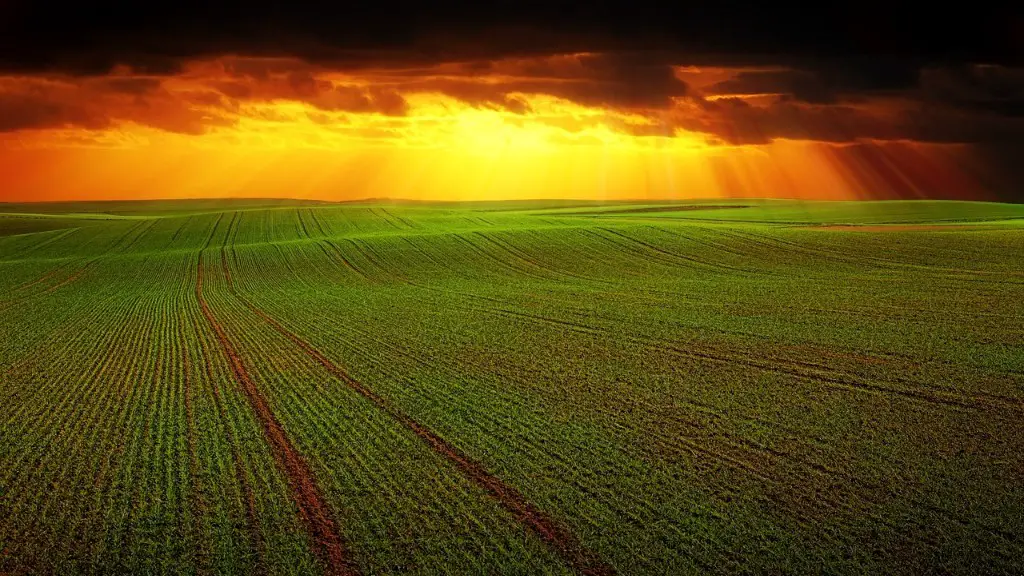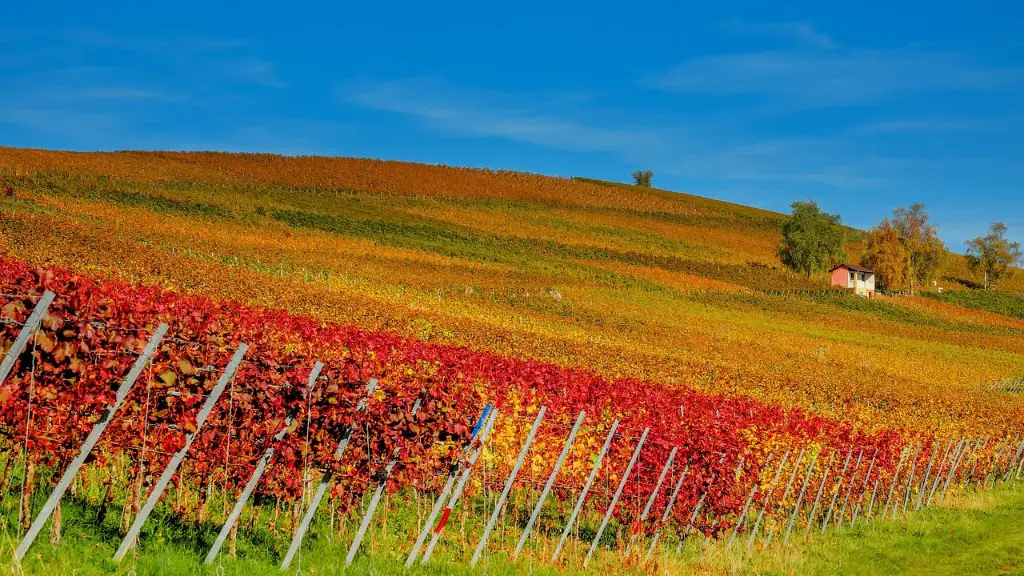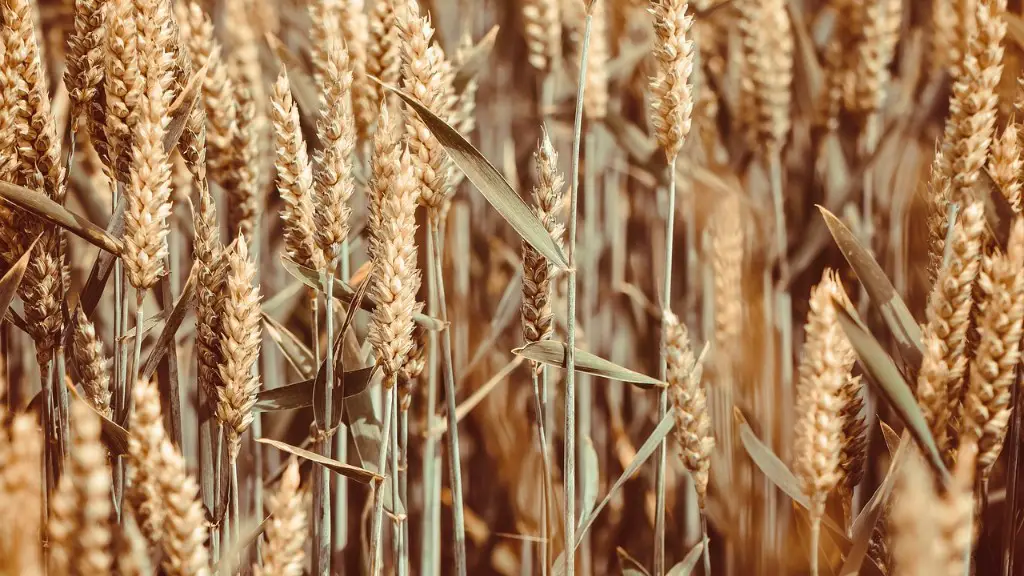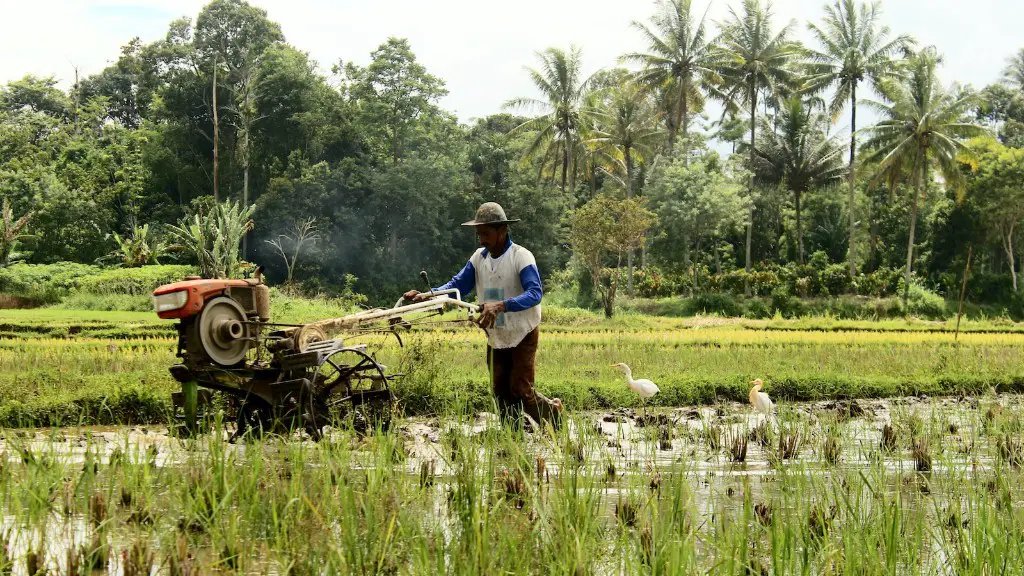Agriculture has been an integral part of Nevada’s history and continues to be an important part of its economy. Nevada has five major types of agricultural production: beef, dairy, fruits and vegetables, poultry, and horticulture. Each of the five agricultural production areas of Nevada provide products and services to the residents of the state and contribute significantly to the state’s economy.
The state’s beef industry has a long history and tradition. Nevada’s beef industry is known for its high quality fed cattle, specialty cuts, and premium products. The state’s dairy industry is a significant contributor to the state’s economy, producing raw milk, cheese, butter, and yogurt. Nevada has two large-scale fruit and vegetable production areas – Las Vegas and Reno – that contribute significantly to the state’s overall produce crop.
Poultry production is an important part of Nevada’s agricultural economy. The state has two main poultry production areas – Las Vegas and Reno – that provide poultry, eggs, and other products to the rest of the state. The state is also home to an extensive horticulture industry, producing nursery and greenhouse crops, flowers, turfgrass, and other plants. The state’s horticulture industry is known for its diversity and unique plants.
Agricultural research is an important part of Nevada’s agricultural landscape. The state has several research facilities dedicated to providing research on crop production, food safety, nutrition, and other areas of agricultural production. Research efforts are aimed at developing new technologies and practices to improve the efficiency of crop production and food safety.
The state also provides extensive support to Nevada farmers and ranchers through a variety of programs and services. The state provides loan guarantees, tax incentives, and other financial supports to aid farmers and ranchers in meeting their needs and operating their businesses. The state also provides access to specialized educational and training programs for farmers and ranchers.
The Nevada Department of Agriculture is the primary agency responsible for administering and managing the state’s agricultural sector. The department is responsible for overseeing agricultural production and providing technical assistance to farmers and ranchers. The department is also responsible for enforcing state and federal laws related to food safety, animal welfare, and land use.
Transportation Infrastructure
Transportation infrastructure is essential for commerce and investment in the agricultural industry. The Nevada Department of Transportation is responsible for providing necessary infrastructure to ensure efficient transit of agricultural products to markets and consumers. This includes roads, airports, and railroads that enable the transportation of goods. The department also provides necessary infrastructure to enable the movement of new markets and businesses by helping to locate transportation facilities and by providing assistance in the development of new businesses.
The state also provides financial assistance to farmers and ranchers to ensure their businesses remain viable. This assistance can come in the form of grants, loans, and tax breaks. The department assists the development of new businesses and the expansion of existing agricultural businesses through the provision of necessary infrastructure. The department also works in partnership with other state agencies to facilitate the construction and maintenance of necessary infrastructure.
Furthermore, the Nevada Department of Transportation has partnerships with private companies to provide transportation services for agricultural commodities. Private carriers are also used for transportation of agricultural products. The department works to ensure the safe, timely delivery of products to markets and consumers.
In addition to physical infrastructure, Nevada has numerous business and government programs to help farmers and ranchers stay competitive. These programs include grants, loans, and tax breaks. The department provides technical assistance and support to help farmers and ranchers improve business operations, market access, and productivity. Additionally, the department advocates for policies that benefit the agricultural industry, such as incentives for capital investments in irrigation systems and improved crop yields.
Farmers Market
Farmers markets are an important part of Nevada’s agricultural industry. Farmers markets provide an opportunity for farmers and ranchers to sell their goods and products directly to the public. The Nevada Department of Agriculture works with local communities to promote and support farmers markets, as well as to create incentives for farmers and ranchers to participate in them. The department also helps to connect farmers and ranchers to additional markets, including online marketplaces.
Farmers markets are an important part of Nevada’s agricultural landscape, as they give farmers and ranchers greater access to the markets they service. Having a direct connection to the consumer allows farmers to cultivate strong relationships with their customers, potentially providing an additional revenue stream. Furthermore, farmers markets facilitate the transfer of knowledge and information, facilitating the communication between farmers and consumers.
Farmers markets also provide an opportunity for new farmers or beginning farmers to gain experience in the agricultural industry. Many markets in Nevada offer mentorship opportunities for new farmers to gain knowledge and skills, allowing them to start their own enterprises. Additionally, farmers markets provide a place for local communities to connect, share ideas, and build relationships.
The Nevada Department of Agriculture works closely with farmers and ranchers to promote and support farmers markets across the state. The department also encourages businesses to support farmers markets by providing access to supplies, equipment, and other resources. The department works with local communities to create an environment that encourages and supports farmers markets.
Agritourism
Agritourism is an important part of the Nevada agricultural industry, providing an opportunity for the public to experience life on a farm. Agritourism is becoming increasingly popular in Nevada as people seek out unique experiences. The Nevada Department of Agriculture works closely with farmers and ranchers to develop and promote agritourism opportunities, as well as provide technical assistance and financial support.
Agritourism entails a variety of activities and events, including tours, pick-your-own farms, demonstrations, workshops, and festivals. In addition to providing entertainment and educational opportunities, agritourism helps to increase awareness of agriculture and local farms and helps to generate additional revenue for farmers and ranchers. Agritourism also helps to encourage visitors to appreciate and learn about the history and culture of agriculture in Nevada.
The Nevada Department of Agriculture works with farmers and ranchers to create and promote agritourism opportunities. The department provides technical assistance to help farmers and ranchers develop agritourism opportunities. Additionally, the department provides marketing support and financial assistance to expand agritourism offerings. The department also helps farmers and ranchers find new ways to attract agritourism visitors.
Agritourism is a great way for farmers and ranchers to connect with their local communities and to share their stories with a wider audience. Furthermore, it gives people an opportunity to experience life on a farm and to gain an appreciation for the work farmers and ranchers do. Agritourism is a key part of Nevada’s agricultural industry, and the Nevada Department of Agriculture works hard to support agritourism throughout the state.
Food Processing Plants
Food processing plants are an important part of the Nevada agricultural industry. The Nevada Department of Agriculture works in partnership with food processors to ensure safe, high-quality products. The department also provides technical assistance to food processors to help them meet the demands of the market. Additionally, the department provides grants to help food processors make investments in new equipment and technology.
Food processing plants are an important part of the Nevada agricultural industry, as they provide an opportunity to turn fresh crops into value-added products. Food processing facilities, such as canneries, help to extend the shelf life of crops and to ensure the safe preservation of food products. Processing facilities are also important for the sale of processed products, such as canned goods, frozen foods, and prepared foods.
The Nevada Department of Agriculture works with food processors to ensure safe and quality products, as well as to provide support and assistance with the development of new products. Additionally, the department provides assistance with regulatory compliance and helps to facilitate the adoption of new technologies. The department also provides grants to help food processors invest in new processing equipment and technologies.
Food processing plants are essential for the growth of Nevada’s agricultural industry, as they allow farmers and ranchers to increase their profits by increasing the value of their products. Additionally, food processing plants help to ensure the safe handling and preservation of food products. The Nevada Department of Agriculture provides support and assistance to ensure the success of Nevada’s food processing industry.
Research & Development
Agricultural research and development is a key part of Nevada’s agricultural landscape. The Nevada Agricultural Experiment Station is a program of the University of Nevada, Reno, and is the research arm of the state’s agricultural sector. The program is dedicated to the development of new technologies, practices, and products that improve the efficiency and sustainability of agricultural production.
The research program works to advance knowledge and science in areas such as crop production, soil fertility, and food safety. The program also works to develop more resilient and profitable crop varieties, as well as to improve livestock health and production. Additionally, the program works to develop new markets for Nevada’s agricultural products and to increase the economic viability of the state’s agricultural operations.
The Nevada Agricultural Experiment Station has a variety of research programs, such as the Nevada Crop Improvement Program, which works to improve the genetics and production of various crops. This program works to identify best practices for crop production and provide assistance to farmers and ranchers in the implementation of those practices. Additionally, the program works to develop new crop varieties and provide technical assistance with the production of crops.
The Nevada Agricultural Experiment Station also works to develop and advance products and technologies that can improve the efficiency and profitability of agricultural operations. The program works to improve the sustainability of agricultural production through research and development in areas such as soil health, livestock nutrition, and water conservation. Additionally, the program works to develop new products, such as specialty crops, that can help to diversify Nevada’s agricultural sector.
Research and development is essential for the continued growth and success of Nevada’s agriculture industry. The Nevada Agricultural Experiment Station works to identify and advance innovative practices, technologies, and products that can improve the efficiency and profitability of the state’s agricultural operations. This program is an integral part of the state’s agricultural landscape and works to ensure the success of the Nevada agricultural sector.





